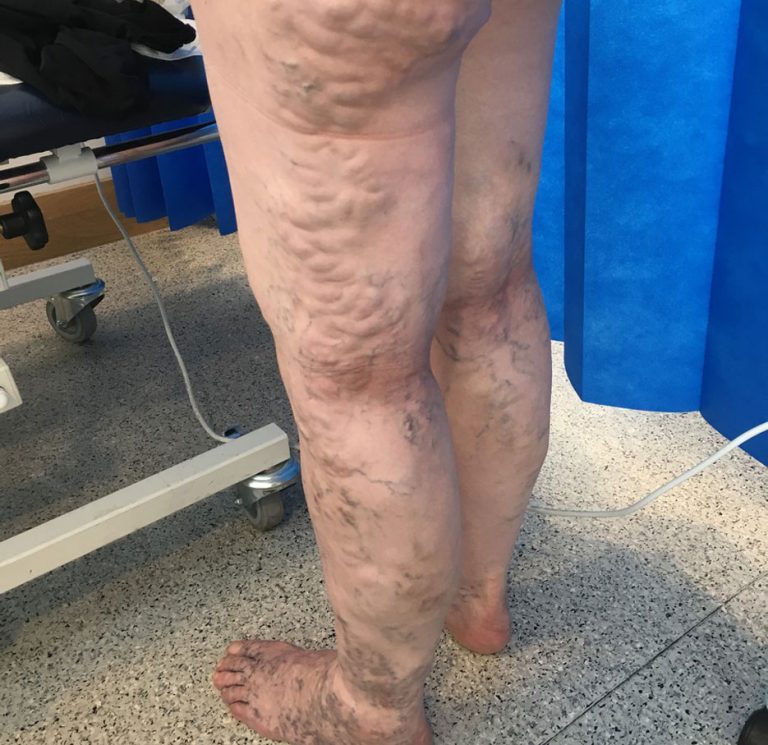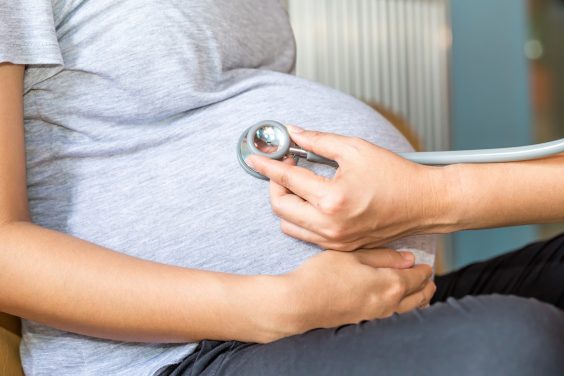Varicose Veins in Pregnancy
More than 40% of pregnant women experience some kind of problem with varicose veins of the leg and/or the vulva during their pregnancy. In addition to that, thread veins, spider veins or broken veins often develop in the legs so it is a very common issue.
Appearance of varicose veins in pregnancy
The varicose veins that appear during pregnancy can occur in embarrassing places. They can not only appear on the leg but also in the vulva/labia and vagina. These varicose veins generally deteriorate during the third trimester (the last 13 weeks). During this time, large swollen varicose veins and spider veins – purple in colour – and thread veins can develop in the leg areas.
It has been found that the more pregnancies a woman has the more likely that varicose veins will appear. That is why the appearance of varicose veins can be more visible during a third pregnancy compared with a first pregnancy when they may not have been visible at all.
Symptoms
Apart from being unsightly, these veins can be very painful and tender and legs may feel particularly heavy towards the end of the day.
Sometimes the varicose veins may become hard, red and tender and blood clots may develop. This is known as thrombophlebitis. If you experience these symptoms during pregnancy you should seek urgent medical advice.
Book your consultation

Causes
Female sex hormones are a major cause of varicose veins during pregnancy. While a woman is pregnant the body will undergo a great deal of change. Hormone levels change and this can result in changes to the body including the increase in the amount of progesterone.
An increase in progesterone can cause blood vessels to relax which can lead to swelling of the veins. In addition to this, female sex hormones can directly cause spider veins, thread veins and broken veins.
If you have a history of varicose veins in the family, you are more likely to develop them as well. Varicose veins also tend to get worse with each pregnancy so if a patient experiences them during their first pregnancy then it is more likely that they will experience them in increasing strength in subsequent pregnancies.
The increased blood in the body during pregnancy places extra burden on veins. As the uterus grows it also creates pressure on the major veins in the pelvic area. This pressure, in turn, adds more pressure to the large vein on the right side of the body called the inferior vena cava. This can all push onto the leg veins and may result in varicose veins.
Taking care of legs and varicose veins during pregnancy
We have all heard people telling pregnant women to put their legs up, but they may not realise that they are actually giving good varicose vein advice as raising the legs while pregnant eases pressure on the veins.
Women should attempt to go into their pregnancy at a healthy weight and also maintain a healthy diet throughout the term of the pregnancy. Wearing class 2 support tights or stockings – or other forms of compression hose – may also help reduce the number of varicose veins that appear.
The good news is that varicose veins will usually disappear after the baby has arrived and improve around three or four months after birth. If the veins are still visible after that patients should discuss further treatment with their doctor.
At the British Varicose Vein Centre we offer bespoke treatment for varicose veins during pregnancy. This can vary from minor thread veins to leg varicose veins to vaginal varicose veins. All treatments are carried out by our highly trained team including vascular surgeons, vascular scientists and interventional radiologists.
Treatments for Varicose Veins in Pregnancy
Pelvic Vein Embolism
- Tried and trusted procedure
- Permanent relief from problem veins
- Rapid recovery
- Positively affects further symptoms relating to pelvic varicose veins
Intra Vascular Ultrasound (IVUS)
- Gives a clearer picture of some conditions
- Can be used to diagnose issues or for treatment
- Provides answers for the possible causes of conditions that are otherwise unexplained
- Can identify blocked stents
- Minimal discomfort
EndoVenous Laser Abaltion
- Gold standard treatment of varicose veins (NICE approved) (99%)
- Keyhole treatment
- All varicose vein sizes can be treated
- Relatively painless with return to work within 24 hours
- Bespoke lasers generators for different size veins and anatomy
- Useful in treating primary and secondary varicose veins
Vein Check-up
At the British Varicose Vein Centre we offer an early detection service for the potential risk of developing thread veins, varicose veins, pelvic varicose veins and deep vein thrombosis (DVT).
Contact Us
Call now on 0207 286 7274 | Email bvvc@varicoseveins.co.uk
Or, fill out the form below and we can call you...

